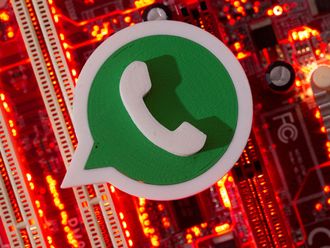“As a Brazilian, I am proud to be an Ambassador for a brand like Volkswagen. In the past 60 years, the company has delivered many innovations, and provided support for millions of Brazilian families. My own ‘business objective’ has always been to score and, with Volkswagen, I am playing on a winning team.”
This is Pele, the world’s most famous footballer on May 13, 2013, on the occasion of his appointment as brand ambassador of the fallen-out-of-grace carmaker. According to the agreement, Pelé represented VW throughout the 2014 World Cup in Brazil and is about to do the same for the build-up to the 2016 Olympic Games in Rio de Janeiro. Or is he?
According to a company’s statement, a TV commercial titled ‘Inova Neymar’ will reflect on the innovations and parallels between Volkswagen and Brazilian football, from Pelé representing the era in which the small, economical VW Beetle was launched, through to Neymar representing current models and the future of Volkswagen. Hmm...
In fact the more extracts one reads from that statement, the stronger the ironies become. The then chairman of Volkswagen in Brazil had added: “In a successful company, you must have a clear business vision or, as they say in football, ‘a precise and powerful kick’ and an ability to ‘dribble past your competition’.”
Dribbling your opponents in football is certainly allowed and for both Pele and Neymar this was a natural strength which helped establish them among the finest footballers of their respective generations. But dribbling your competitors in corporate language carries different connotations and might not even be legal, as the current VW scandal has already proven.
Volkswagen in recent years have become one of German football’s biggest sponsors through investments worth a reported €80 million (Dh329.64 million) in the Bundesliga side Wolfsburg, which is owned by the carmaker. Audi, a Volkswagen subsidiary, holds about 9 per cent of Bayern Munich’s shares and stakes in another Bundesliga club Ingolstadt.
Volkswagen sponsors several other German clubs, as well as DFB-Pokal — the German Cup — since the 2012-13 season.
Take Fifa. When brand ambassadors misbehave or when sponsors’ money falls into disrepute due to the actions of those they support, companies are quick to air their dissatisfaction. They threaten legal action to protect their reputation which they claim is likely to be damaged through their association with someone or something facing pubic frowning.
Fifa’s roster of sponsors is in deliberations these days around the circumstances that saw Russia and Qatar win the hosting rights for the World Cup tournaments in 2018 and 2022.
But are brands prepared to play ball with the same rules when the opposite occurs? Should Pele turn the tables, withdraw his ambassadorship with VW, demand payment in full and sue the company saying that it has caused him embarrassment and damaged his reputation? Should Wolfsburg be banned from any European football competition on the grounds that its funding is the result of fraud? And should the club then sue VW for compensation to retrieve lost revenues from its potential ban?
But that’s complicated given the current credibility level of Uefa and its President Michel Platini, the ex-French footballer allegedly involved in a bribery scandal.
The web of intricacies and power play is getting all the more perplexing as human greed and corporate complexities combine to muddle the waters and make transparency and trustworthiness attributes as rare as the chances Greece has to repeat their 2004 European Nations Cup triumph.
That this happened in the first place gives some hope, albeit distant, that both brands and brand ambassadors will eventually realise that risking a reputation is simply not worth the risk. And that doing the right thing, ethically and morally, should always be the preferred action.
The irony is that the majority of CEOs agree that reputation is the most important asset their companies have. Imagine if they didn’t...
It will be interesting to gauge the reaction of Pele in coming weeks as indeed would be intriguing to see whether the unfolding VW saga could impact on the loyalty levels of Wolfsburg’s fanatic fans and the club’s perception among fans of opposition teams for the remainder of the season and beyond.
The writer is Head of PR and Social Media at Al-Futtaim Group and author of ‘Back to the Future of Marketing – PRovolve or Perish’.











